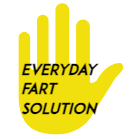How to fart good?
How to fart good?- Curious
Have you ever wondered if there’s a secret to mastering the fine art of flatulence? Well, you’re not alone!
We’ve all been there, suppressing laughter in serious situations or trying to muffle the inevitable sound.
In a world where everyone farts but few talk about it, let’s dive into the intriguing realm of “How to Fart Good.”
Here how to make your dog fart?
How to fart good?
To alleviate discomfort and minimize embarrassment while passing gas, consider certain practices.
First, be mindful of your diet, avoiding gas-inducing foods like beans and carbonated beverages.
Maintain regular bowel movements and stay hydrated to promote digestive health. Engage in physical activity to stimulate digestion. Practice controlled release by adjusting body positioning and applying gentle pressure.

Cultivate a relaxed attitude, as stress can contribute to digestive issues.
Ultimately, a balanced diet, proper hydration, regular exercise, and a calm mindset can collectively contribute to more discreet and less odorous flatulence.
Here how to get rid of fart smell in car?
9 ways to fart good
Related faq’s
How do I get rid of trapped gas?
To relieve trapped gas, try gentle exercises like walking, massage your abdomen, and use over-the-counter gas-relief medications.
Drink peppermint tea, apply heat to your abdomen, and maintain good posture.
Avoid carbonated drinks and large meals. If symptoms persist, consult a healthcare professional for further evaluation and advice.
Why can’t I fart easily?
What makes you fart more?
Farting frequency is influenced by diet, with gas-producing foods like beans, broccoli, and carbonated drinks contributing.
Swallowing air, bacterial fermentation in the gut, and individual digestive differences also play roles.
Managing diet, staying hydrated, and addressing digestive issues can help regulate gas production for most people.
How do I stop being so gassy?
To reduce gas, identify and limit gas-producing foods like beans and cruciferous vegetables. Chew food thoroughly, avoid drinking through straws, and eat smaller, more frequent meals.
Stay hydrated and engage in regular physical activity. Probiotics may help balance gut bacteria. If issues persist, consult a healthcare professional for personalized advice.
Conclusion:
In this whimsical journey exploring the delicate topic of flatulence, we’ve uncovered the science, etiquette, and humor behind it.
Now, let’s turn the spotlight on you! What’s your secret to mastering the art of a perfectly timed and discreet release?
Share your tips below and let the gas tales continue!




